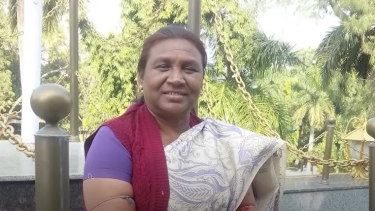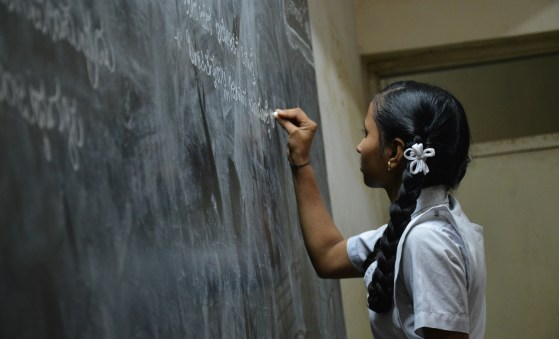
In a significant move reflecting growing concerns about religious freedom in India, more than 400 Christian leaders and 30 church organisations have submitted an urgent appeal to President Draupadi Murmu and Prime Minister Narendra Modi, highlighting escalating violence against their community during the 2024 Christmas season.
The comprehensive appeal, drafted amidst reports of fourteen separate attacks on Christian gatherings during the festive period, presents a stark picture of mounting religious tensions across the nation. According to data from the Religious Liberty Commission of the Evangelical Fellowship of India (EFIRLC), the year 2024 has witnessed over 720 incidents targeting Christians up to mid-December, whilst the United Christian Forum’s toll-free helpline has documented 760 cases through November.
The gravity of these concerns was starkly illustrated during the 2024 Christmas season. These incidents occurred despite Prime Minister Modi’s own participation in Christmas celebrations hosted by the Catholic Bishops Conference of India (CBCI) in New Delhi, where he emphasized the importance of strengthening love, harmony, and brotherhood in line with Jesus Christ’s teachings, a stark contrast to the ground reality experienced by the community.
“Over 700 incidents of violence in 2024. - two cases of target hate violence a day - clearly indicate that a section of the ruling dispensation including police and local government, are not reconciled to a constitution that guarantees freedom to citizens to profess , practice and propagate their religion. This erodes and corrodes one of the critical bonds that keep the country together. This is what I try to caution the highest offices in the country. India can survive only as a secular democracy; not as a theocracy,” veteran human rights activist and writer Dr. John Dayal told Christian Today.
Rising hate speech, especially from elected officials, has emboldened acts of violence against Christians, the appeal notes. The appeal, signed by prominent religious figures, as well as civil rights activist Shabnam Hashmi, brings attention to several systemic challenges facing India’s Christian minority, which constitutes 2.3% of the country’s 1.40 billion population.
The incidents during Christmas 2024 spanned multiple states, including violent disruptions in Uttar Pradesh, where peaceful gatherings were interrupted and pastors were detained; Madhya Pradesh, where ten Christians were arrested in Burhanpur's Kerpani village during Christmas celebrations under sections 3 and 5 of the MP Religious Freedom Act; and Odisha, where two tribal women were tied to a tree and assaulted on suspicion of attempting religious conversion. In Rajasthan, activists targeted teachers and students celebrating Christmas in schools, while in Kerala, traditionally known for its communal harmony, Vishwa Hindu Parishad members disrupted Christmas celebrations at a government school in Palakkad.
The pattern of harassment spans both urban and rural areas, from Haryana, where multiple celebrations were disrupted despite prior permissions, to Uttarakhand, where extremist groups interrupted home church gatherings. In several cases, such as in Lucknow’s Hazratganj area and Rohtak, religious gatherings were disrupted by organized groups chanting religious slogans, highlighting the systematic nature of these challenges.
While these incidents during Christmas highlighted immediate concerns, the situation in Manipur represents a deeper, ongoing crisis, where religious violence has resulted in more than 250 fatalities, the destruction of over 360 churches, and the displacement of thousands since May 2023. The Christian leadership has specifically called for Prime Minister Modi’s direct intervention in the region, emphasising that Manipur’s healing is crucial for maintaining national unity.
“These are moments that call for the undivided attention of our Prime Minister. Visible leadership and personal engagement at the highest level. The prime minister of India is a powerful catalyst for peace and unity. The healing of Manipur is crucial not just for the Northeast, but for our vision of a united India.” the appeal states.
The document outlines several pressing issues, including the controversial implementation of anti-conversion laws across various states. The appeal highlights specific regional challenges: “In states like Uttar Pradesh, Chhattisgarh and Madhya Pradesh, peaceful home prayer meetings and even family celebrations are disturbed, and the families are being forced out of their homes.”
Currently, as per the appeal, more than 110 Christian clergy members are imprisoned, with some being denied bail. The appeal particularly criticises recent amendments to Uttar Pradesh’s legislation, describing them as “the most draconian in independent India.” Historical data suggests that over 1,000 Christians have been incarcerated under these laws.
The impact of these laws was evident during the Christmas season, with incidents such as in Unnao district, where Pastor Ajay Rajput faced false accusations of conversion through inducements, and in Maharashtra’s Navi Mumbai, where Pastor Vijay Salve was questioned about allegations of black magic and forced conversions before being granted permission to hold a Christmas prayer meeting.
In Assam, the newly enacted Healing (Prevention and Evil) Act, 2024, has reportedly been used to target Christian pastors and church workers, with at least twelve religious workers facing charges. The situation is further complicated by restrictions on beef consumption, which community leaders argue has become another tool of harassment.
The appeal also addresses the long-standing issue of Dalit Christians’ exclusion from Scheduled Caste status, a matter pending before the Supreme Court since 2004. Additionally, there are growing concerns about demands to remove Christian tribals from the Scheduled Tribes list, which religious leaders argue undermines constitutional protections based on faith.
The Christian leadership has proposed several concrete measures, including swift and impartial investigations into incidents against religious minorities, clear guidelines for state governments regarding religious freedom protection, and the establishment of regular dialogue between government offices and faith communities.
The appeal also articulates the disparity in religious freedoms: “The freedom to distribute and sell religious texts like the Bhagavad Gita at street corners and weekly markets is a testament to India’s cherished values, enshrined in our constitution. Christians are routinely beaten up if they distribute the Bible, or even a small part of it.”
The appeal emphasises that religious inclusivity is not merely a moral imperative but an economic necessity, citing the 2024 Nobel Laureates in Economics’ research on the correlation between inclusive political institutions and national prosperity.
“Religious harmony isn’t just about social cohesion,” said Rev. Dr. Richard Howell, Chairman of the Evangelical Church of God, while speaking to Christian Today. “ It is fundamental to India’s economic future. As the Nobel Laureates have shown, nations thrive when they embrace diversity and protect minority rights. A India that protects all faiths is a stronger India.” he added.
Despite these challenges, the Christian community has reaffirmed its commitment to national unity and development, whilst continuing to pray for the country’s leadership. The appeal concludes with a powerful message about building a stronger, more united India, emphasising the community’s dedication to constitutional values of patriotism, fraternity, equality, and religious freedom.
“Christians across India continue to pray for you and for the prosperity of our nation. We
remain committed to building a stronger, more united India,” the appeal says.
The comprehensive nature of this appeal, supported by detailed documentation of incidents and backed by prominent religious leaders, represents one of the most significant collective actions by India’s Christian community in recent time, highlighting the urgent need for dialogue and resolution of religious tensions in the world’s largest democracy.




